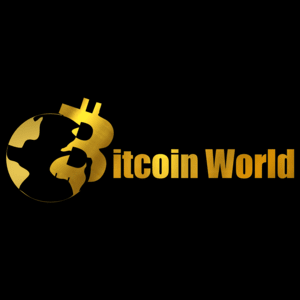South Korea Crypto Regulation: PPP’s Bold Plan to Revolutionize Exchanges and Boost Institutional Adoption
5 min read
Big news is brewing from South Korea, potentially signaling a significant shift in how the nation handles digital assets. The People Power Party (PPP), a major conservative political force, has thrown its hat into the ring for the upcoming presidential election with a surprising and impactful agenda item: overhauling the current cryptocurrency regulatory landscape. This isn’t just minor tweaking; their sights are set on some fundamental changes that could reshape the environment for South Korea crypto regulation . What’s Happening with South Korea Crypto Exchanges ? At the heart of the PPP’s proposal is a plan to scrap the existing ‘one-bank rule’. Now, you might be asking, what exactly is the one-bank rule? Currently, under South Korean regulations, each registered crypto exchange is required to partner with just one commercial bank. This single bank is responsible for handling real-name accounts for the exchange’s users, verifying identities, and ensuring compliance with anti-money laundering (AML) and know-your-customer (KYC) requirements. It’s a system designed, in part, to keep a tight leash on the crypto market and prevent illicit activities. While intended to enhance security and oversight, this rule has also created bottlenecks and potential dependencies. Exchanges are heavily reliant on their single banking partner, and securing such a partnership has been a significant hurdle for new or smaller exchanges. This can limit competition and innovation within the sector of South Korea crypto exchanges . Scrapping this rule could mean: Increased Competition: More banks could potentially partner with multiple exchanges, or exchanges could partner with several banks, easing the barrier to entry. Reduced Dependency: Exchanges would be less vulnerable to issues or policy changes from a single banking partner. Potential for Innovation: Greater banking flexibility might encourage exchanges to develop new services or features. Paving the Way for Institutional Crypto Trading South Korea Beyond the banking rule, the PPP’s agenda also includes a commitment to establishing a clear legal framework specifically tailored for business and institutional crypto trading. This is a crucial step. While retail crypto trading is widespread in South Korea, the path for larger financial institutions, corporations, or investment funds to directly engage with digital assets has been less clear and more restricted. Why is a dedicated framework important for Institutional crypto trading South Korea ? Legal Clarity: Provides certainty on how institutions can hold, trade, and account for digital assets. Risk Management: Lays down rules for institutional-level risk assessment and compliance. Market Growth: Opening the door to institutional capital could bring significant liquidity and maturity to the South Korean crypto market. Investor Protection: Tailored regulations can offer specific protections relevant to institutional-scale activities. This move signals an understanding that the crypto market is evolving beyond individual investors and that institutions require a different set of guidelines than retail traders. Understanding the Broader South Korea Crypto Regulation Landscape South Korea has a complex history with cryptocurrencies. It’s a nation with high crypto adoption rates among its population, but the government has often approached regulation with caution, sometimes leaning towards strict measures to protect investors and prevent speculation or illegal activities. Previous regulations have included banning anonymous trading accounts (leading to the one-bank rule for real-name accounts) and implementing strict listing requirements for exchanges. The PPP’s proposals, as reported by Herald Economy, suggest a potential pivot towards fostering growth and institutional participation while still maintaining regulatory oversight. It indicates a recognition of crypto’s growing importance in the global financial landscape. Navigating the future of South Korea crypto regulation will be key for both domestic and international players looking to operate or invest in the market. Analyzing the Potential Impact of the PPP Crypto Policy The proposed PPP crypto policy , if implemented, could have far-reaching effects. For individuals, potentially increased competition among exchanges could lead to better services and perhaps lower trading fees. For businesses and institutions, a clear legal framework removes ambiguity and lowers the compliance burden, making direct participation more feasible. However, challenges remain. Crafting effective regulation is complex. It needs to balance innovation and growth with crucial aspects like investor protection, market integrity, and preventing illicit finance. The details of the new framework for institutions and the specifics of how the banking rule change would be implemented will be critical. Benefits: Increased access to banking services for exchanges. Potential for more exchanges to operate legally. Greater clarity and opportunity for institutional investors. Potential for market growth and liquidity. Signals a potentially more pro-innovation stance from the government. Challenges: Ensuring robust AML/KYC compliance without the single-bank bottleneck. Developing a comprehensive and effective legal framework for institutions. Potential for regulatory arbitrage if rules aren’t harmonized. Implementation complexity and timeline. Gaining consensus across political parties and regulatory bodies. What Does This Mean for Crypto Banking South Korea ? The current system ties the legitimacy of an exchange heavily to its relationship with one specific bank for real-name accounts. This has made securing a banking partner a golden ticket, and losing one a potential death knell for an exchange. Changing this dynamic directly impacts Crypto banking South Korea . If the one-bank rule is scrapped, we could see banks becoming more willing to work with crypto exchanges, potentially offering a wider range of services beyond just real-name accounts. This could normalize the relationship between traditional finance and the crypto sector in South Korea, potentially leading to more integrated financial products and services down the line. It’s a move that could transition Crypto banking South Korea from a bottleneck to a facilitator, potentially enabling smoother fiat on/off ramps and greater financial stability for exchanges and their users. Looking Ahead: Actionable Insights What should you take away from this? For Investors: Keep an eye on the election results and subsequent policy developments. Changes could impact the exchanges you use and the overall market liquidity. For Exchanges: This proposal offers hope for a less restrictive banking environment and potentially increased institutional participation. Prepare for potential shifts in compliance requirements. For Institutions: If the PPP wins and implements this policy, South Korea could become a much more attractive market for direct crypto involvement. Start understanding the potential new framework. For the Market: This news adds to the narrative of increasing global regulatory focus and gradual integration of crypto into traditional finance, particularly regarding institutional access. Conclusion The People Power Party’s proposal to scrap the one-bank rule for crypto exchanges and build a legal framework for institutional trading is a significant development in the realm of South Korea crypto regulation . It signals a potential shift towards a more open, competitive, and institution-friendly crypto market in one of Asia’s key economies. While these are currently just proposals tied to an election agenda, they highlight the evolving perspective on digital assets within South Korea’s political landscape. The coming months will be crucial in determining if these bold plans move from proposal to reality, potentially revolutionizing the future of South Korea crypto exchanges and fostering significant Institutional crypto trading South Korea . To learn more about the latest crypto regulation trends, explore our article on key developments shaping crypto market institutional adoption.

Source: Bitcoin World



